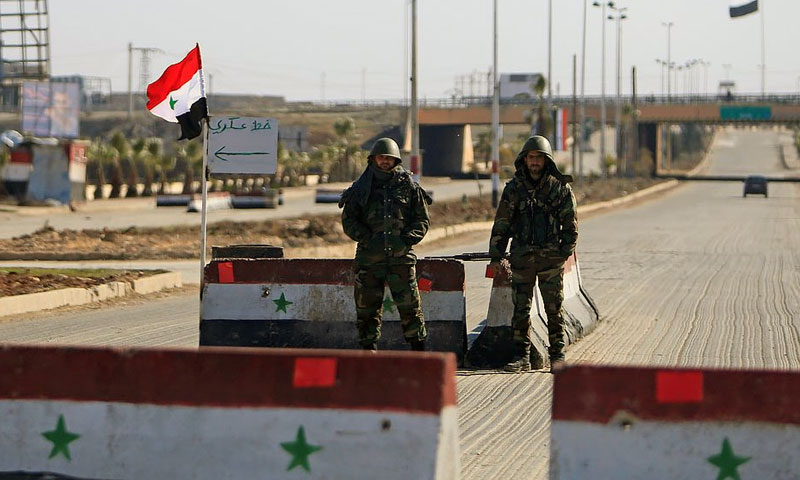



Despite the fact that eastern Ghouta has been the principal target for the reconstruction projects in Syria and rural Damascus, the area is suffering security restrictions, organizedly and individually, on the part of Assad’s forces’ troops and the Syrian regime’s security branches.
The first of Assad’s campaigns against eastern Ghouta have targeted the money transfer offices in the city of Kafr Batna; they arrested all the employees, with no exception, to interrogate them about the sources of these remittances and get the data of the recipients.
Intersecting sources told Enab Baladi that the exchange and money transfer offices are enduring a close security by the security branches’ agents; which enables the latter to get hold of the data of remittances’ senders, recipients and the villages from where they have been sent.
The sources pointed out that remittances could now be sent to the area, but the Military Security is referring the remittances’ owners to investigation, in case the received sum is over $400 (175 Syrian pounds according to exchange rates on the day of writing the report) for internally transferred money, while recipients of external remittances are investigated regardless of the money’s amount.
“I was forced to close my shop after it became a target for Assad’s checkpoint troops’ leisure,” Mohammad, 32 years old from the city of Kafr Batna, informed Enab Baladi, pointing out that his shop turned into a “charity,” that is in addition to daily exploitation, which after all pushed him to shut down the shop and cost him a lot of money to relocate it.
Mohammad said that he was not alone in this, for his neighbors’ shops were also exploited by Assad’s forces, which forced the shop owners to offer them free meals, juice and cigarettes, sometimes out of courtesy and forcibly on other times.
The checkpoint’s troops forced their way into the shops on the pretext of investigation or to examine the place to take their share of the commodities presented in the shops, Mohammad said.
The workers who stayed in Eastern Ghouta, after they accepted the reconciliation’s conditions, are exposed to constant checking of personal belongings and electronic devices, according to the former activist Samer, who chose a pseudonym for security reasons.
Samer, who used to work in the field of relief, told Enab Baladi that Assad’s forces have suddenly raided his house, asking for his cellphone and laptop.
They arrested Samer for four days and before they gave him his computer back and released him, they restored all the erased files and intensively went through them.
Another source, on the condition of anonymity, told Enab Baladi that the majority of the people who worked for relief organizations and civil society establishments, as well as doctors are all under house arrest, especially those who exited through the “safe” crossings opened by Assad’s forces under a Russian auspice.
Dozens of the young people who have been detained at the housing centers have been sent to the Air Forces Branch in Harasta and al-Khatib Branch in Damascus to be interrogated, according to the source, who pointed that some of these young people have been released while others are yet in prions.
The fate of the detained people is so far unknown and similarly are the reasons due to which they have been imprisoned despite all the reassurances of Assad’s forces who promised not to arrest or persecute those who exited the area.
if you think the article contain wrong information or you have additional details Send Correction